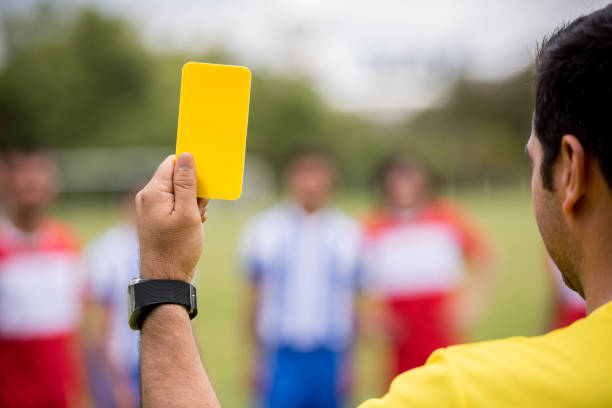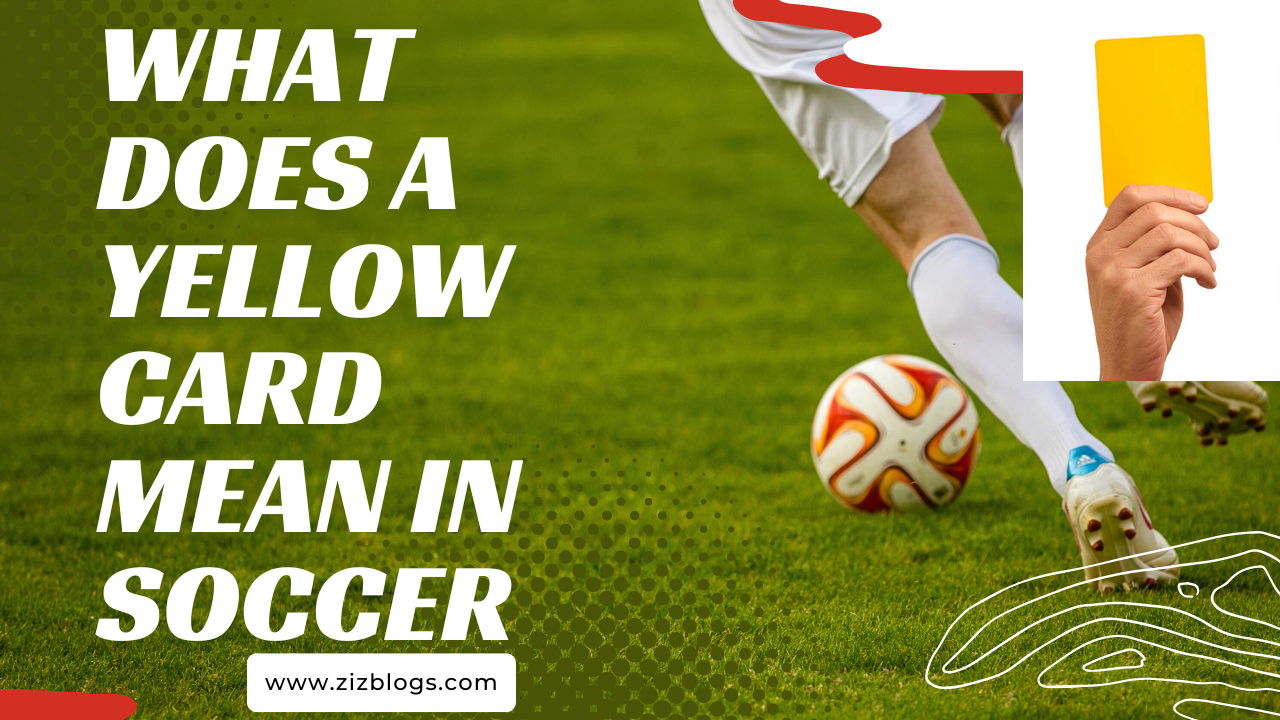What Does a Yellow Card Mean in Soccer
In the dynamic world of soccer, a yellow card serves as a significant marker of player conduct and match regulation. As a soccer enthusiast, understanding the implications of a yellow card is essential to appreciating the intricacies of the game.
Introduction to Yellow Card in Soccer
In the game of soccer, a yellow card represents a formal cautionary measure issued by the match referee to a player for misconduct or an infringement of the rules. It acts as a warning signifying that the player’s behavior is deemed unacceptable and requires correction.

Rules Governing Yellow Cards
Yellow cards are typically issued for a variety of infractions, including reckless challenges, dissent towards the referee, time-wasting tactics, or simulation (commonly known as diving). Referees hold the authority to issue yellow cards based on their interpretation of the game’s rules and regulations.
Implications of Receiving a Yellow Card
Upon receiving a yellow card, the player is required to leave the field of play for a brief moment, known as a “cooling-off period,” before rejoining the game. Additionally, accumulating multiple yellow cards throughout a series of matches can result in suspension from future games, impacting both the player and their team.
Difference Between Yellow and Red Cards
While a yellow card serves as a cautionary measure, a red card signifies a player’s expulsion from the match due to severe misconduct or a serious rule violation. The consequences of receiving a red card are more severe, often resulting in the team playing with a numerical disadvantage for the remainder of the game.

Strategies to Avoid Yellow Cards
Players often employ various tactics to minimize the risk of receiving a yellow card, such as exercising restraint in challenges, maintaining respectful communication with referees, and adhering to fair play principles. Teams may also develop strategic plans to prevent players from accumulating excessive yellow cards.
Controversies Surrounding Yellow Cards
Yellow card decisions are not immune to controversy, with instances of disputed rulings sparking debates among players, coaches, and fans. The introduction of Video Assistant Referee (VAR) technology has aimed to provide additional clarity and accuracy in yellow card adjudication.
Historical Significance of Yellow Cards
Yellow cards have undergone significant evolution since their inception, reflecting changes in the sport’s rules and disciplinary measures. Memorable yellow card incidents have left lasting impressions on soccer history, shaping the way players and teams approach the game.
Yellow Card Statistics and Analysis
Analyzing yellow card data provides valuable insights into player behavior and match dynamics. Trends in yellow card distribution across different leagues offer a deeper understanding of disciplinary patterns within soccer.
Psychological Impact on Players
Receiving a yellow card can have psychological ramifications on players, affecting their confidence and decision-making on the field. Implementing strategies to cope with yellow card pressure is crucial for maintaining peak performance.

Educational Role of Yellow Cards
Yellow cards serve as educational tools for players, coaches, and spectators, highlighting the importance of sportsmanship and fair play. Incorporating lessons on yellow card discipline into soccer coaching helps foster a culture of respect and integrity.
Yellow Card Etiquette and Respect
Players are expected to demonstrate sportsmanlike conduct even after receiving a yellow card, showing respect towards referees and opponents. Upholding standards of etiquette contributes to a positive and inclusive soccer environment.
Global Perspectives on Yellow Cards
Attitudes towards yellow card enforcement may vary across different soccer leagues and cultures, reflecting diverse interpretations of the game’s rules and values. Understanding these cultural nuances enriches the global soccer community.
Technology’s Influence on Yellow Cards
Advancements in referee technology, such as goal-line technology and VAR, have impacted yellow card adjudication, aiming to enhance fairness and accuracy in decision-making. Continued innovation in this area holds promising implications for the future of soccer officiating.
Fan Reactions to Yellow Cards
Yellow card incidents often elicit passionate reactions from fans, both in stadiums and on social media platforms. Fan engagement with yellow card decisions contributes to the vibrant and spirited atmosphere surrounding soccer matches.
Conclusion
In summary, the yellow card plays a vital role in maintaining discipline and fairness in soccer matches. Understanding its significance enhances our appreciation for the game’s intricacies while reinforcing values of sportsmanship and respect.
FAQs About Yellow Cards in Soccer
- What happens when a player receives a yellow card?
- When a player receives a yellow card, they are cautioned by the referee for misconduct, and they must temporarily leave the field of play.
- How many yellow cards result in a suspension?
- Accumulating a certain number of yellow cards over multiple matches can lead to a player being suspended for future games, with the threshold varying depending on the league or competition rules.
- Can a yellow card decision be overturned?
- In some cases, yellow card decisions can be reviewed and overturned through video review technology, particularly if a clear error is identified.
- Do yellow cards carry over between different competitions?
- Yellow cards typically carry over within the same competition or league, but rules may vary between different tournaments or organizations.
- Are there any consequences for a team if multiple players receive yellow cards in a single match?
- While there are no immediate consequences for a team if multiple players receive yellow cards in a single match, accumulation of yellow cards over multiple matches can lead to team penalties, such as fines or point deductions.

